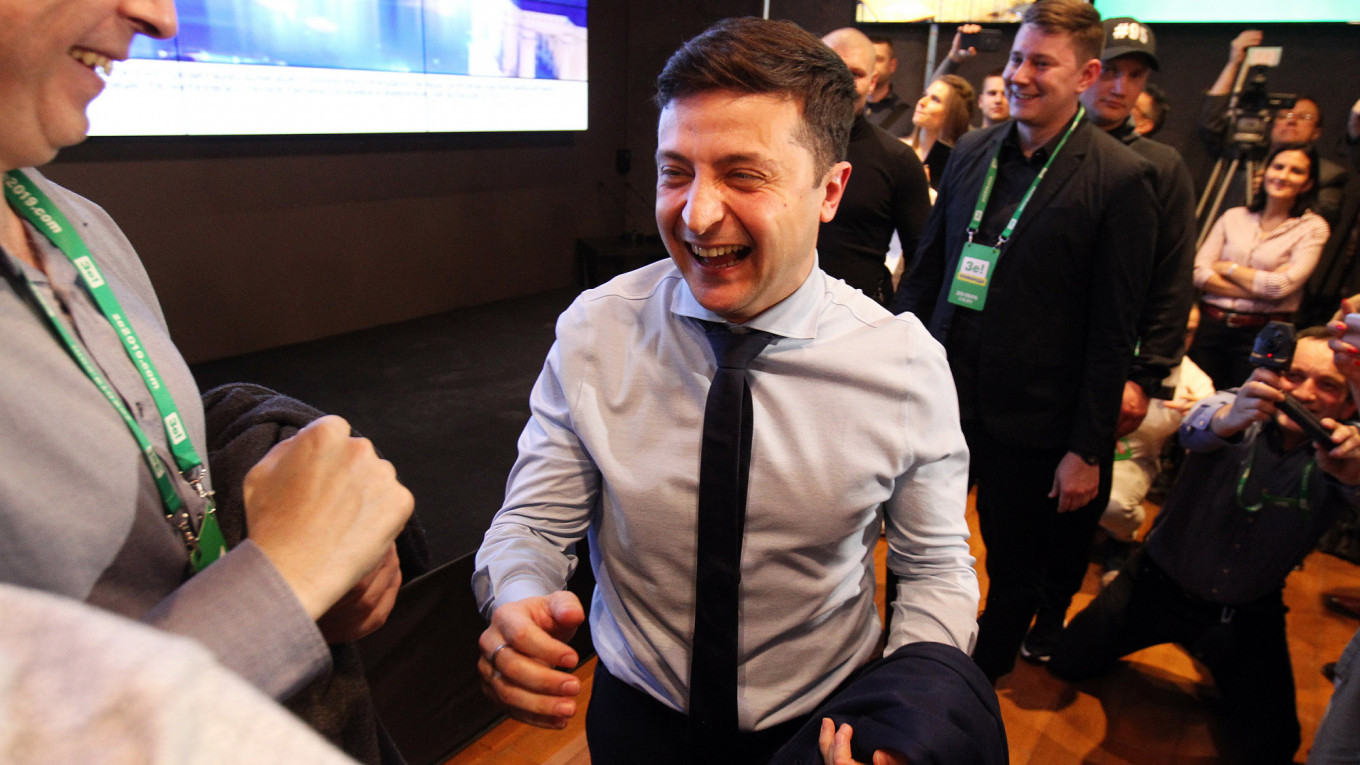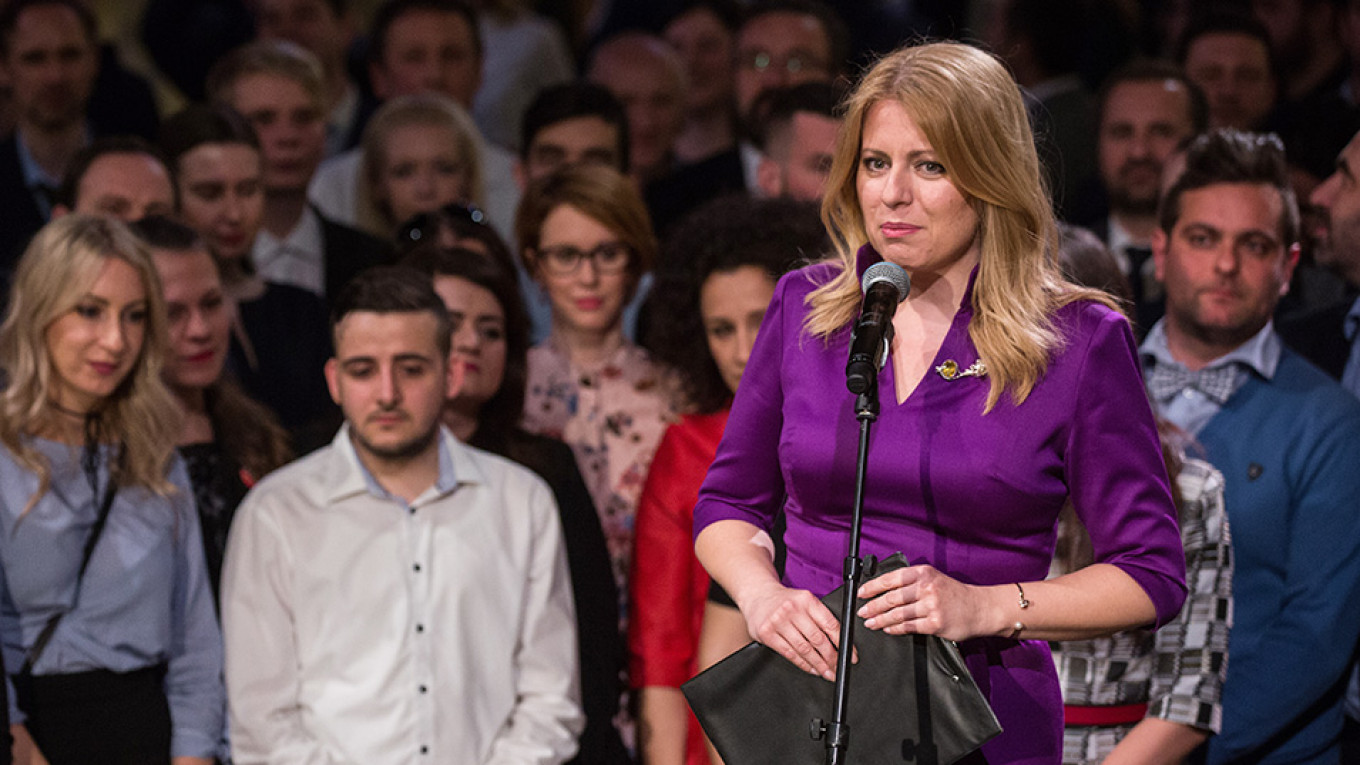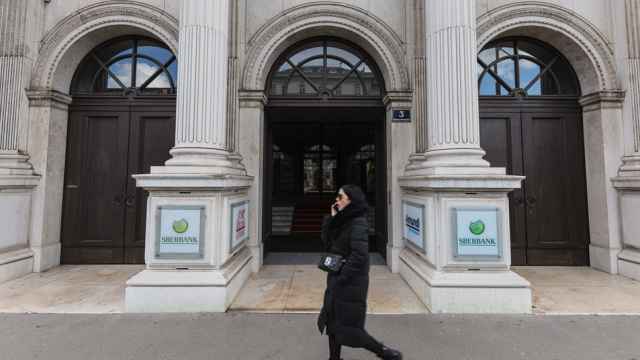The presidential elections that took place in Ukraine and Slovakia, a day apart, served as a lesson for European countries and for Russia; a potential indicator of their own political future.
Years of disappointment with the establishment has given had voters seeking fundamental change, and new faces in politics.
In this brave new world, political experience is, in fact, a negative quality for an elected head of state. Coming from outside the system can only be a good thing, along with a completely different way of speaking to voters, especially young people.
There are many differences between Zuzana Čaputová, who won the Slovakian presidential election on March 30, and Volodymyr Zelensky, who won in the first round of Ukraine’s election on March 31.
Čaputová can boast of a wealth of experience in human rights work together with a history of successfully challenging the state.
Zelensky has nothing but his reputation as a popular showman, whose on-screen role as an ordinary guy whoaccidentally ends up becoming president appears to be a case of fiction becoming reality. And yet, there are many more qualities that unite them.

In a world in which election results are often determined by voters aged 65 and over, they are young. Their core audience, as surveys have shown, is made up of 18-30 year-olds.
For this, they have brought young people to the polling stations in places where no one has given a thought to the youth vote for a long time. They speak a different language: not the dialect of those on the left or the right, with empty promises, but a rhetoric that appeals on moral grounds.
Zelensky’s dream of a peaceful country is something that voters in war-torn Ukraine can relate to: a state without the grim vision of incumbent President Petro Poroshenko. Zelensky was also not afraid of offering ambitious plans rather than figures in his manifesto; instead of advertisements offering Ukrainians work in Poland, he dreamed of ads offering Poles work in Ukraine.
Maybe Zelensky’s push to appeal to Polish workers is an utopia, but voters perceive it as a clear goal, and one that’s not connected with the neverending hybrid war with Russia that must be won, through means yet unclear.
Čaputová declared ‘evil’ as her main opponent. When a seasoned politician says, “if we don’t change anything now, it will be too late,” it comes across somewhat vapid, but when it comes from the lips of a human rights defender who shut down a landfill site following a 14-year-old battle, it looks like a very concrete promise.
Zelensky and Čaputová do not look politicians. A charismatic 45-year-old divorcee and mother of two, Čaputová has charmed a Slovakia that has been heading in the same conservative direction as Poland and Hungary has in recent years. And (yet), Čaputová won the election despite the Catholic Church declaring it a sin to vote for her because of her liberal attitude to abortion and same-sex marriage.
Meanwhile, in Ukraine, it turns out that 41-year-old fun-loving Jewish comedian Zelensky is what voters need and want following Sovietized leaders Leonid Kravchuk and Leonid Kuchma, the revolutionaries Viktor Yushchenko and Yulia Tymoshenko, and the militant oligarch Petro Poroshenko, who cites Russian President Vladimir Putin’s name so frequently as if to suggest the country had no other problems.
Their respective parties, Progressive Slovakia and Servant of the People, are new and unrepresented in their countries’ parliaments. It’s hard to define them along the narrow lines of left or right-wing, the nearest approximation perhaps being populist, or liberal-populist.
This being said, it’s hard to call Čaputová a populist: her human rights and anti-corruption agenda is absolutely vital and tangible in a country that appears to have finally snapped out of a stupor, following the shocking murder of the investigative journalist Ján Kuciak and his girlfriend just over a year ago.
Čaputová’s opponent in the election was Maroš Šefčovič, a politician who, five years ago, would have been considered the perfect candidate, thanks to his experience and macho image. Now, this is only important to less than half of voters.
Poroshenko’s final campaign message was “Think” — i.e., don’t trust glib talkers; trust experienced professionals. But if the output of is corruption, monopolization, and the inability to implement reforms over the last few years, then why not entrust the running of the country to someone with relatively no experience?
So it seems then that what voters want then is new leaders that operate outside the system, talk a new kind of talk, and present short but vibrant manifestos. For that, it’s not essential to be far left or far right; it’s important to be different. With this, perhaps extremism is going out of fashion.
And while this might appear far from Russian politics, the muted discontent that has been growing, manifesting itself in protest voting in regional elections or in the resistance to landfill sites, is gradually giving rise to a new kind of politician in Russia too. Russians might not yet be ready to accept this challenge because they don’t believe it’s genuine.
Further down the line? It might be too late then.
A Message from The Moscow Times:
Dear readers,
We are facing unprecedented challenges. Russia's Prosecutor General's Office has designated The Moscow Times as an "undesirable" organization, criminalizing our work and putting our staff at risk of prosecution. This follows our earlier unjust labeling as a "foreign agent."
These actions are direct attempts to silence independent journalism in Russia. The authorities claim our work "discredits the decisions of the Russian leadership." We see things differently: we strive to provide accurate, unbiased reporting on Russia.
We, the journalists of The Moscow Times, refuse to be silenced. But to continue our work, we need your help.
Your support, no matter how small, makes a world of difference. If you can, please support us monthly starting from just $2. It's quick to set up, and every contribution makes a significant impact.
By supporting The Moscow Times, you're defending open, independent journalism in the face of repression. Thank you for standing with us.
Remind me later.








